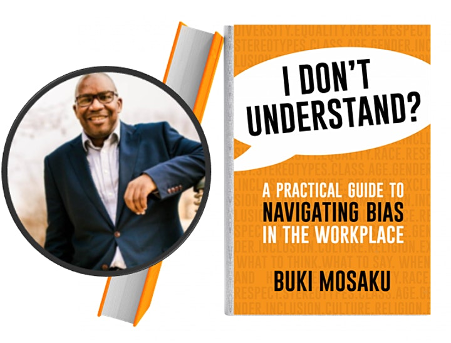Inclusion Expert Discusses Workplace Bias Solutions To Empower Organizations
Communications expert and top advisor on unconscious bias navigation in the workplace, Buki Mosaku, has released his solutions to dealing with the 4% glass ceiling in Black leadership positions across sectors. Contact him today for vital insights on how to address this significant issue!

Are you a corporation that would like to expand your diversity and inclusion but have no idea how to go about it?
Author and unconscious bias expert Buki Mosaku of DiverseCity Think Tank, a London-based diversity and inclusion consultancy, has launched a new report discussing proposed solutions to what is known as the pervasive 4 per cent issue. Buki Mosaku is the author of “I Don't Understand? A Practical Guide To Navigating Bias In The Workplace”.
More details can be found at https://diversecitytt.com and https://navigatingbias.com
By releasing this report, Buki Mosaku seeks to offer you a pragmatic approach to addressing the 4 per cent glass ceiling the Black community encounters in academic establishments and companies across the board. He hopes to offer you fresh insight and methods that can be implemented to correct this situation.
In an article written for 'Democracy - A Journal of Ideas', Jamal Simmons, a political contributor at CBS news claims that in nearly all sectors, Black inclusion in leadership positions seems to stall around the 4 per cent mark.
Simmons proposed that institutions and corporations use a "parallel process of staged integration, partnering with Black-led organizations (BLOs) to source and develop talent." The report emphasizes a seamless transition of all talent into institutions at appropriate times with the organization making meaningful cultural changes that promote workplace equity to nurture minority leaders from within.
Is your organization experiencing the 4% phenomenon? Do you want to know more about handling this issue without overreacting or doing too little?
In his report, Buki Mosaku responds to Simmons' article, arguing that despite its significant conclusions and proposed solutions, it fails to entirely address fundamental bias-related problems. In most cases, these problems converge to stifle the careers of Black minorities and their inclusion in leadership levels.
Mosaku recommends that Black minorities must be equipped with interpersonal skills to navigate bias in the workplace that stops their career progression at the highest levels. Mosaku adds that more attention should be placed on teaching skills to navigate what he terms "Directional Bias" when it occurs in the workplace. Failure to do so causes racial tension and demoralization stifling the career of many Black executives who would otherwise reach board-level positions.
In addition, global coach, consultant, and communications expert Buki Mosaku also feels that Simmons' piece fails to consider two crucial parts of the equation. First, the Stockholm Syndrome, which many Black senior leaders may suffer from once they succeed, and consequently stifle the career of their Black counterparts. Second, the Brothers/Sisters Syndrome, where a Black senior leader may demand more of their race for fear of being seen as partial.
Furthermore, Mosaku says "The white majority also need to be equipped with skills to address 'Reverse Bias' which has a self-perpetuating effect on racial stereotypes such as black people having a chip on their shoulder, which is an equal part of the problem.” This was discussed during a recent interview with Sony Award-winning Presenter Miranda Rae.
To access the interview please visit https://lnkd.in/deBF2rC
Buki Mosaku and the team at DiverseCity Think Tank focus on helping corporate organizations and academic institutions understand unconscious bias and develop actionable solutions to address it in their working environment.
You don't need to suffer the 4% phenomenon - plan for a fair and inclusive senior-level workforce today! Visit https://www.linkedin.com/posts/buki-mosaku-a91162_diversitymatters-ftse100-fortune1000-activity-6777903823341023232-WSPQ or https://diversecitytt.com to learn more and help your organization grow.

